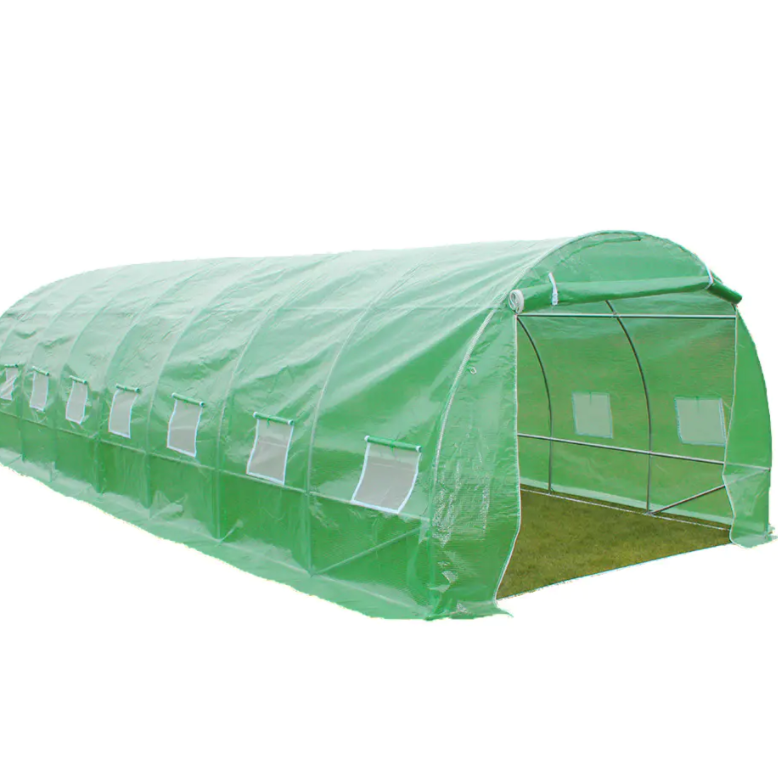Do Resin Storage Sheds Require Extra Pest Protection?
Modern resin storage sheds are manufactured from high-density polyethylene (HDPE) or polypropylene, materials that naturally resist insect damage. Unlike wood, resin does not provide nutrients for termites, carpenter ants, or beetles, meaning pests are far less likely to burrow into or feed on the structure. Even so, certain environmental factors can still attract insects to the surrounding area. Debris accumulation around the shed, poorly sealed gaps, or moist soil conditions may allow insects to nest nearby. While the shed walls themselves are safe from infestation, adding simple preventive measures—such as sealing floor joints, keeping vegetation trimmed, and avoiding direct soil-to-wall contact—helps minimize the likelihood of pests entering through small openings or ventilated areas. Therefore, resin sheds generally do not need specialized chemical treatments, but they do benefit from good site maintenance and proper installation practices.
Are Additional Anti-Corrosion Measures Necessary?
One of the key advantages of resin-based structures is their immunity to corrosion. Resin does not rust, rot, or chemically degrade when exposed to moisture, making anti-corrosion treatments unnecessary. Unlike metal sheds, which require coatings to prevent oxidation, or wood sheds, which depend on periodic sealing to avoid decay, resin maintains structural integrity with very little effort. Even in coastal regions where salt-laden air accelerates corrosion on metal fixtures, the resin panels remain unaffected. The only vulnerable components in this context may be metal hardware such as screws, hinges, and door latches. Using stainless steel or galvanized hardware eliminates the need for separate anti-corrosion treatment. As long as hardware is chosen appropriately, the shed can withstand humidity, rainfall, and temperature fluctuations without additional protection.
How Does Moisture Resistance Reduce the Need for Anti-Rot Treatment?
Resin materials are highly resistant to moisture absorption. They do not swell, warp, or develop fungal rot, which are common problems in wooden structures exposed to damp environments. Because resin surfaces remain non-porous, mold and mildew cannot easily penetrate or damage the exterior panels. Any superficial mold growth typically forms only on dirt or organic debris attached to the surface and can be cleaned with a mild detergent. Since the structural material itself is not affected, there is no need for anti-rot or preservative treatments. Proper ventilation, drainage around the shed, and routine cleaning further enhance long-term performance without requiring chemical preservatives.
Does Environmental Exposure Affect Resin Durability Over Time?
While resin stands strong against insects and moisture, UV exposure can gradually cause fading or reduce surface gloss. This aesthetic change does not compromise the shed’s resistance to pests or rot. Most modern resin materials include UV inhibitors within their composition, reducing the effects of sun damage. In extremely sunny climates, periodic cleaning and applying manufacturer-recommended protectants may help retain the shed’s color. However, these measures relate to appearance rather than structural preservation. Importantly, UV exposure does not create conditions that make the shed more vulnerable to insects or decay, confirming that resin requires far less protective treatment than wood or metal alternatives.
Are There Any Situations Where Extra Protection Becomes Beneficial?
Although resin requires minimal protective treatment, certain installation environments may still benefit from small preventive enhancements. In densely vegetated areas, installing a gravel base discourages insects from nesting beneath the shed. In regions with high humidity, ensuring adequate ventilation prevents condensation inside the shed, lowering the risk of mold growth on stored items. If the shed incorporates hybrid components such as wooden flooring or metal reinforcement, those specific parts may still need protection suited to their materials. As long as these additional components are handled properly, the resin panels themselves will remain maintenance-free.
Conclusion: How Much Protection Does a Resin Shed Truly Need?
In most environments, resin storage sheds do not require extra pest control or anti-corrosion treatments because the material itself is highly resistant to insects, moisture, and rot. Their durability makes them a low-maintenance alternative to traditional wooden or metal sheds. Only minimal preventive practices—such as maintaining a clean installation area, sealing minor gaps, and selecting rust-resistant hardware—are needed to ensure long-term performance. As a result, resin sheds remain one of the most convenient and resilient options for homeowners seeking reliable outdoor storage with minimal upkeep



